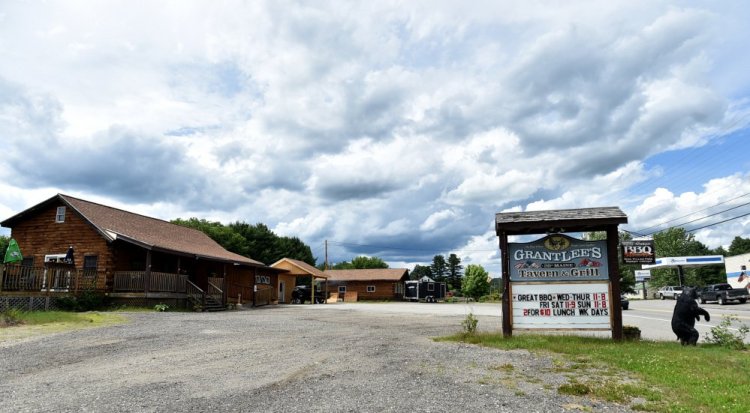The Maine Center for Disease Control and Prevention is investigating a travel-associated case of measles in Franklin County, the first confirmed instance of the highly contagious respiratory disease in Maine in two decades.
The case was confirmed Monday at the Maine Health and Environmental Testing Laboratory, said Dr. Siiri Bennett, the state epidemiologist. The last reported measles case in Maine was diagnosed in 1997.
State officials refused to identify the person associated with the Franklin County case, but said the person contracted the virus overseas. Farmington hospital officials said a female was involved, but neither they nor Bennett would say if the case involved a child or an adult. They also would not say whether the person had been vaccinated.
No other measles cases have been reported or are under investigation in Maine, but officials are concerned enough about the potential exposure to urge people to watch for symptoms. Anyone potentially exposed who experiences symptoms should call a primary care provider before going to an office or hospital so preparations can be made to prevent spread of the virus, Bennett said.
“If it is, in fact, measles, we don’t want (patients) in any waiting room,” Bennett said. “We don’t want them to expose others.”
Bennett urged anyone eligible for a measles vaccination to get one. The virus is highly infectious and unvaccinated people have up to a 90 percent chance of contracting the disease if exposed. Last year there were about 70 cases of measles in the U.S., down from 188 in 2015, according to the U.S. Centers for Disease Control and Prevention. There already were 100 suspected cases by May this year.
Though Maine consistently has one of the highest immunization opt-out rates in the country – usually ranking in the top 10 for unvaccinated students, according to the federal CDC – the state has made progress in improving its immunization rate for measles.
Measles, which is spread by coughing or sneezing, is a viral disease characterized by high fever, rash, cough, runny nose, and red eyes caused by the measles virus. The rash typically starts at the head before moving down the body, and presents as flat or raised red spots. The infection can cause severe health complications including pneumonia, encephalitis and death. An infected person is contagious from four days before the rash starts through four days afterward.
The virus remains alive for as long as two hours on surfaces and in the air after an infected person leaves an area. The incubation period for the disease is typically 10 to 14 days, but can be as long as 21 days.
State officials said the public may have been exposed to measles at these times and locations: on June 15 from 4-9 p.m. at the Narrow Gauge Cinema in Farmington, on June 15 from 7-11 p.m. at Grantlee’s Tavern and Grill in Farmington, on June 17 from 8 a.m. to 2 p.m. at the Farmington Farmers Market, on June 18 from 10 a.m. to 2 p.m. at the Kingfield Woodsman, on June 18 from noon to 4 p.m. at the Restaurant la Chocolateria in Quebec City, on June 18 from 8-10:30 p.m. in the Franklin Memorial Hospital emergency room in Farmington, and on June 19 from noon to 12:30 p.m. in the Franklin Memorial Hospital laboratory in Farmington.
Franklin Memorial Hospital in Farmington, where the patient arrived Sunday for care, was checking immunization records for any personnel who might have been exposed, said Becky Wood, chief nursing officer and vice president of patient care services.
Typically, Wood said, when a patient arrives with coughing symptoms, staff members will put a mask on the patient and isolate the person for treatment, using dedicated equipment to ensure no further transmission. Wood said anyone who might have symptoms should contact his or her primary care provider. If symptoms are consistent with the disease, testing may be done to determine whether a person is infected.
The measles vaccine – which treats measles, mumps and rubella – is highly effective and is widely used around the world, state officials said. Typically, the vaccine is administered to children before they’re a year old and a second dose is usually administered from age 4 to age 6.
Officials said any suspected cases of measles should be reported immediately to (800) 821-5821.
Send questions/comments to the editors.




